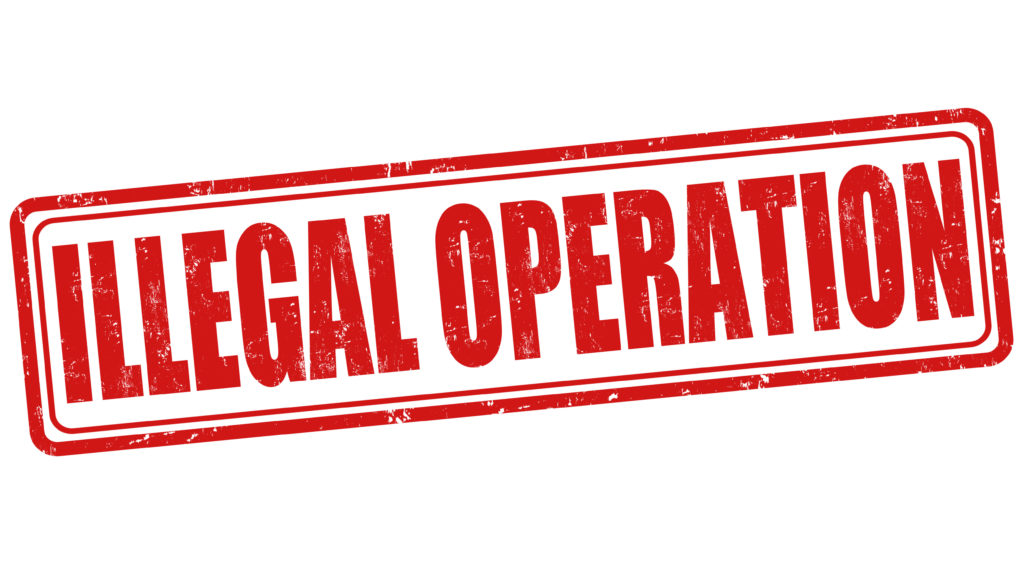Understand Racketeering and Connect with an Attorney
What Is Racketeering?
Racketeering is a criminal activity in which a person engages in illegal business activities or extortion. This is most commonly found in organized crime groups. Racketeering involves a pattern of crimes involving:
- Robbery
- Bribery
- Extortion
- Gambling
- Dealing obscenely
- Dealing in the manufacturing or distribution of controlled substances
- Arson
- Kidnapping
- Murder
Have you found yourself involved in racketeering charges? If so, turn your case over to a reputable and experienced legal advocate.
The RICO Act
The Racketeer Influenced and Corrupt Organization Act, also known as the Organized Crime Act, passed in 1970 to help stop organized crime. Before the act, crime bosses were tough to prosecute because they were not the ones actually carrying out specific crimes, they only ordering others to do so. Crime bosses were in charge of organized criminal activity, yet they never received charges because they left the dirty work to others.
The RICO Act allowed prosecutors to charge crime bosses or anyone involved in organized crime for racketeering. Under the act, a prosecutor must prove the defendant owns and/or manages an organization, and that that organization regularly performs one or more illegal activities.
Although the RICO Act came about to eliminate organized crime and prosecute crime bosses, it has a much wider range of uses. For example, the act prosecuted several members of the clergy for allowing priests to molest children. The priests had no active involvement in the crime, but were in charge of the church and allowed a continuous pattern of illegal activities.
The Elements of a Racketeering Case
Under the RICO Act, it is illegal and a federal crime to engage in any of the following:
- Conduct affairs of a business through racketeering activities
- Acquire or maintain a business/organization through racketeering activities
- Use money earned from racketeering to acquire, establish or manage any organization that affects interstate commerce
- Conspire to do any of the above
If a person receives racketeering charges under the RICO act because of the above crimes, the prosecution must demonstrate the existence of three elements in the defendant’s activities. The following section breaks down what the prosecution needs to prove during a racketeering case.
There Must Be a Pattern of Criminal Activity
Racketeering involves a pattern of an organization or business’s illegal activities. The crimes committed that fall under the racketeering umbrella are “predicate crimes,” and there must be at least two of those crimes committed in the past year.
For a pattern to exist, the predicate crimes must relate to each other and show that the defendant did not just commit one crime, but ongoing criminal activities. Predicate crimes can include countless charges, including drug trafficking, kidnapping, robbery and embezzlement. An example of a pattern of predicate crimes is selling drugs frequently.
It Is a Criminal Enterprise
A pattern of criminal activities is not enough for a racketeering conviction. A distinct criminal enterprise must perform the illegal activities, not just a person working alone. For example, a business, organization, union, partnership or tight-knit informal group (such as a gang) are enterprises. For a group to constitute a criminal enterprise, it must:
- Be an ongoing organization that functions together as a unit
- Exist separately and apart from each member’s criminal activity
- Have a common purpose
Just because a group of people commits a pattern of crime does not make them a criminal enterprise. They must meet the above criteria to fall under the racketeering umbrella.
For a prosecutor to convict a defendant with racketeering, he or she must take this one step further. The defendant not only needs to take part in a criminal enterprise, but evidence must exist that the defendant had some level of control over the operation or management of the enterprise.
There Is an Effect on Interstate Commerce
RICO violations must affect interstate commerce, which means it has a significant economic impact from state to state. Most organizations that deal and move goods, money or people satisfy this requirement.
Penalties for Racketeering
The penalties for a racketeering criminal conviction are severe and range from 20 years to life, and punishment severity depends on the number of predicate crimes and the crimes committed. For example, racketeering can lead to a life sentence if the predicate crimes involved first-degree murder.
The RICO Act also permits the forfeiture of any assets obtained because of the racketeering activity. This means the government would obtain ownership of things like properties, cars or money that resulted from organized illegal activities.
In addition to criminal convictions, the RICO laws also permit civil suits against racketeers. If a person suffered financial harm because of a loss of business or damage of property because of racketeering activities, that individual can bring a civil suit against the at-fault party. If the plaintiff proves the existence of a RICO violation that resulted in financial harm, then the court orders the defendant to:
- Pay the plaintiff triple damages
- Stop engaging in certain activities
- Pay the plaintiff’s legal fees
The civil suit requirements for proving a violation of the RICO Act are similar to the criminal charge requirements.
Work With an Experienced Local Lawyer
Were you recently charged with racketeering? Do you need a confident, experienced and dedicated attorney to fight for you in court and defend your rights? If so, you are in the right place. Request Legal Help has all the information and resources you need. By filling out and submitting the form on our website, we can connect you to racketeering attorneys near you. If you have questions, submit a request online or call us today at (866) 345-6784 to get in touch with an experienced lawyer in your area!

